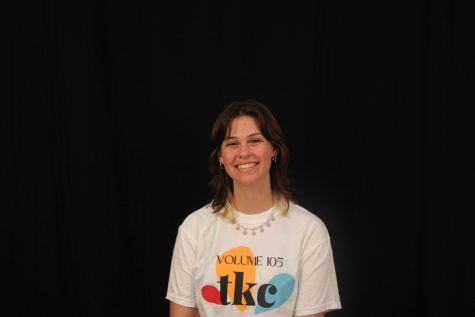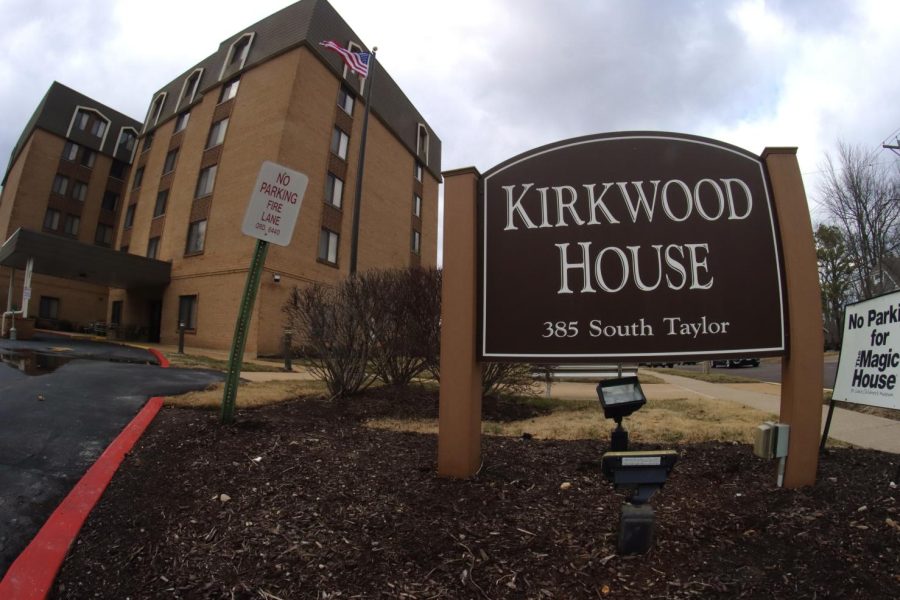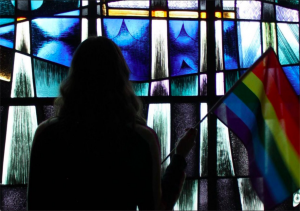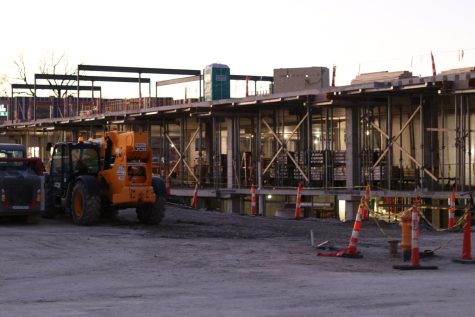The Kirkwood bubble
The median price of a Kirkwood home is almost $200,000 more than the average price of a home in Missouri.
With the median price of a Kirkwood home being almost $200,000 more than the average price of homes in Missouri, Kirkwood is known for being a more affluent neighborhood. This reputation continues to grow as the local economy does, with businesses like Mission Taco, Rush Bowls and the Whisker Station Cat Cafe all opening in downtown Kirkwood in the last four years.
One former community member left Kirkwood due to these changes in the environment after about 20 years. She moved away to a more rural area for convenience, transportation and cultural reasons. She said that among these reasons was the growing, ever-present sense that she just didn’t belong in Kirkwood’s culture.
“The [wealth gap] became much wider,” she said. “Everyone was always talking about their world-wide trips and then I would start talking about my trips to state parks. [People would talk about] New Zealand, Australia and all that. I’ve just been busy teaching my whole life.”
Throughout her time in Kirkwood, she saw all sides of these changes in the city, from living in downtown Kirkwood, to working for the city government as well as attending Greentree Community Church. Despite loving the quaint suburb, she said she discovered Kirkwood may not be the place for her. She said that as more restaurants and boutiques she couldn’t afford began to open up around her, she felt like she didn’t belong.
“I just started feeling poorer and poorer,” she said. “Which I’m not, but there I am [still feeling poor].”
She said the way Kirkwood developed around her felt like a continuation of the annexation of Meacham Park in the 1990s. In 1991, Meacham Park was voted to be annexed from Kirkwood by the city shortly before a strip mall was built in between the two communities, dividing them even further.
“I moved to Kirkwood because [I heard] it had a diverse population and the schools were good,” she said. “But then when I moved in, I discovered that the diversity was pretty much just Meacham Park.”
Trish Ashley is the executive director of The Kirkwood House, an affordable and independent living community for the elderly and disabled, and has lived in Kirkwood all her life and attended KHS in the 1960s. She and many of her tenants have noticed drastic changes in the community since their childhood in Kirkwood.
“They’re tearing down all the smaller houses that [working-class] people actually could afford that want to move into Kirkwood,” Ashley said. “If you don’t have the big bucks, you can’t afford to move into where they tear down one of these little houses and put one of these great big houses.”
One of the biggest attractions of The Kirkwood House is that there is no set rent. Compared to the average rent of $1,276 in Kirkwood according to RentCafe, the amount that tenants pay for both rent and utilities at The Kirkwood House is dependent on their income. This is due to the ownership of HUD housing, which supports both Rose Hill House and The Kirkwood House, making them the only facilities in Kirkwood that do this. Both are unable to accommodate families.
“I have young girls calling me with little kids always looking for a place to live,” Ashley said. “They can’t afford a regular apartment.”
Currently, there is a three-year waiting list on apartments at The Kirkwood House, even with it being specific to elderly and disabled adults.
Adelyn McCandless, former KHS student and now ___ senior, moved out of Kirkwood in October of last year due to a tree that grew into her basement. However, she said that moving out of Kirkwood was in some ways a financial weight off her family’s shoulders.
“We could barely afford to live there,” McCandless said. “It was crazy expensive and our house wasn’t even that big. I can’t imagine how much more expensive [bigger houses in Kirkwood] are.”
After selling the house to a contractor, McCandless’s house was remodeled and sold for around $700,000. She said she didn’t believe the house was really worth that much, and that more affordable housing should be developed in Kirkwood for people who need it.
“The average person doesn’t have enough money [to live in Kirkwood],” McCandless said. “[Often] it comes down to living somewhere that’s safe but being in debt for the rest of your life, or going somewhere that’s not as safe but paying less.”
For comparison, the likelihood of being victim to a violent crime in Kirkwood is 1.63 people per every 1,000 residents according to Neighborhood Scout. While in St. Louis, there are approximately 20 violent crimes per 1,000 people according to Traveller’s Worldwide.
McCandless said affordable housing would not just benefit people who can’t pay for houses in Kirkwood, but current community members as well. She thinks it would be good for Kirkwood to diversify.
“[More affordable housing] would provide more opportunities to meet more people,” McCandless said. “It would be better for the school as well because more people [could] move in and pay taxes toward the schools and get involved.”
McCandles, Ashley and the former community member all said they want more people to be able to experience the “cute” suburb of Kirkwood, Missouri. In order to do this, Susan Hayman of the Kirkwood-Webster Times wrote in June 2021 that “we must ask our city council to help maintain housing stock that allows for residents with limited incomes to move into our city.”
“They made a mistake when they [started tearing houses down],” the former community member said. “Everybody should have access to the great schools and parks [of Kirkwood]. [Without affordable housing] people are going to miss out on cultural and societal diversity and just get wrapped up in a certain group of people.”
Your donation will support the student journalists of Kirkwood High School. Your contribution will allow us to purchase equipment and cover our annual website hosting costs.

She/Her
Hobbies and Interests: reading, sleeping, starting things I never finish
Favorite song: Yoshimi Battles the Pink Robots Pt. 1 by The Flaming...

She/Her
Hobbies and Interests: photography, piano, hiking, reading
Favorite song: New Year's Day by Taylor Swift
Favorite Quote: "To define...











